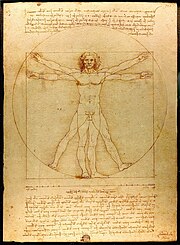Pedagogy (etymology and pronunciation) is the discipline that deals with the theory and practice of education; it thus concerns the study and practice of how best to teach. Its aims range from the general (full development of the human being via liberal education) to the narrower specifics of vocational education (the imparting and acquisition of specific skills).
For example, Paulo Freire referred to his method of teaching people as "critical pedagogy". In correlation with those instructive strategies, the instructor's own philosophical beliefs of instruction are harbored and governed by the pupil's background knowledge and experience, situation, and environment, as well as learning goals set by the student and teacher. One example would be the Socratic schools of thought. The teaching of adults, however, may be referred to as andragogy.
Etymology and pronunciation

The word comes from the Greek παιδαγωγία (paidagÅgia), from παιδαγωγός (paidagÅgos), in which παῖς (paÃs, genitive παιδός, paidos) means "child" and ἄγω (ágÅ) means "lead"; thus literally "to lead the child". It is variously pronounced /ˈpÉ›dəɡÉ'dÊ'i/, /ˈpÉ›dəɡoÊŠdÊ'i/, and /ˈpÉ›dəɡÉ'É¡i/. Negative connotations (in which the word is sometimes associated with pedantry) have existed at least from the time of Samuel Pepys (1650s).
Academic degrees
An academic degree, Ped. D., Doctor of Pedagogy, is awarded honorarily by some US universities to distinguished teachers (in the US and UK, earned degrees within the instructive field are classified as an Ed. D., Doctor of Education or a Ph.D. Doctor of Philosophy). The term is also used to denote an emphasis in education as a specialty in a field (for instance, a Doctor of Music degree in piano pedagogy).
Pedagogues
The word pedagogue was originally used in reference to the slave who escorted Roman children to school. In Denmark, a pedagogue is a practitioner of pedagogy. The term is primarily used for individuals who occupy jobs in pre-school education (such as kindergartens and nurseries) in Scandinavia. But a pedagogue can occupy various kinds of jobs, e.g. in retirement homes, prisons, orphanages, and human resource management. These are often recognised as social pedagogues as they perform on behalf of society.
The pedagogue's job is usually distinguished from a teacher's by primarily focusing on teaching children life-preparing knowledge such as social skills and cultural norms. There is also a very big focus on care and well-being of the child. Many pedagogical institutions also practice social inclusion. The pedagogue's work also consists of supporting the child in their mental and social development.
In Denmark all pedagogues are trained at a series of national institutes for social educators located in all major cities. The programme is a 3.5-year academic course, giving the student the title of a Bachelor in Social Education (Danish: Professionsbachelor som pædagog).
It is also possible to earn a master's degree in pedagogy/educational science from the University of Copenhagen. This BA and MA program has a more theoretical focus compared to the above-mentioned Bachelor in Social Education.
In Hungary, the word pedagogue (pedagógus) is synonymous with teacher (tanár); therefore, teachers of both primary and secondary schools may be referred to as pedagogues, a word that appears also in the name of their lobbyist organizations and labor unions (e.g. Labor Union of Pedagogues, Democratic Labor Union of Pedagogues). However, undergraduate education in Pedagogy does not qualify students to become teachers in primary or secondary schools but makes them able to apply to be educational assistants. As of 2013, the 5-year training period was re-installed in place of the undergraduate and postgraduate division which characterized the previous practice.
References

Further reading
- Bruner, J. S. (1960). The Process of Education, Cambridge, MA: Harvard University Press.
- Bruner, J. S. (1966). Toward a Theory of Instruction. Cambridge, MA: Belkapp Press.
- Bruner, J. S. (1971). The Relevance of Education. New York, NY: Norton
- Bruner, J.S. (1986). A Study of Thinking. New Brunswick, NJ: Transaction Press.
- Bruner, J. S., Goodnow, J. J., Austin, G. A. (1986). A study of thinking. New Brunswick, NJ: Transaction Press.
- Freire, P. (1970). Pedagogy of the Oppressed. New York: Continuum
- Montessori, M. (1909). Il Metodo della Pedagogia Scientifica applicato All'educazione Infantile Nelle Case dei Bambini.
- Montessori, M. (1910). Antropologia Pedagogica.
- Montessori, M. (1921). Manuale di Pedagogia Scientifica.
- Montessori, M. (1934). Psico Geométria.
- Montessori, M. (1934). Psico Aritmética.
- Piaget, J. (1926). The Language and Thought of the Child. London: Routledge & Kegan.
- Piaget, J. (1975/1936). "La Naissance de L'intelligence Chez L'enfant". ["Emergence of Intelligence in the Child"]. Neuchatel: Delachaux et Nieslé. Cited in Tomic, W. & Kingma, J (1996). Three Theories of Cognitive Representation and Their Evaluation Standards of Training Effect. Heerlson, The Netherlands: The Open University.
- Piaget, J (1975/1936). "La Naissance de L'intelligence Chez L'enfant". ["Emergence of Intelligence in the Child"] in Three Theories of Cognitive Representation and Their Evaluation Standards of Training Effect. Neuchatel: Delachaux et Nieslé/Heerlson, The Netherlands: Heerlson.
- Johann Karl Friedrich Rosenkranz (1848) Pedagogics as a System. Translated 1872 by Anna C. Brackett, R.P. Studley Company
- Johann Karl Friedrich Rosenkranz (1899). The philosophy of education. D. Appleton and Co.
- Vygotsky, D. (1962). Thought and Language. Cambridge, MA: MIT Press.
- Wood, D. (1976). "The role of tutoring in problem solving". Journal of Child Psychology and Psychiatry 17: 89â€"100.
